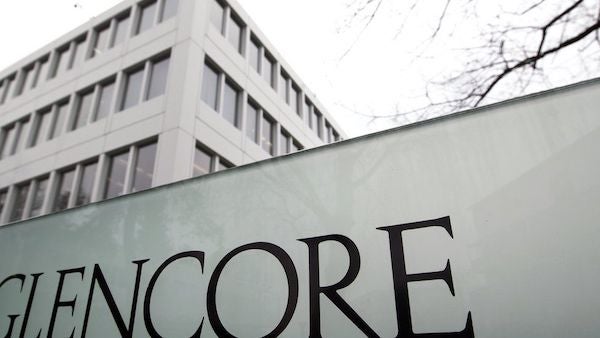Civil society groups call for urgent action from the company and its partners
In May 2022, Glencore, a multinational company at the heart of global commodity markets and the energy transition, admitted to widespread and systematic corruption in countries across the globe. Glencore pleaded guilty to U.S., U.K. and Brazilian corruption charges and is expected to pay approximately $1.5 billion in penalties. A U.S. official involved in the investigations said his team found that “bribery was built into [Glencore’s] corporate culture. The tone from the top was: whatever it takes.”
Glencore claims its harmful corporate culture is now in the past. Six civil society groups today call on Glencore to demonstrate its new commitment to “be a responsible and ethical operator”, and detail concrete steps the company should take. The groups further press Glencore’s partners—including banks, investors and trading partners—to insist on these changes as a precondition for further engagement with the company.
Glencore paid bribes over a 10-year period in at least 8 countries including some of the world’s poorest: Brazil, Cameroon, Côte d’Ivoire, the Democratic Republic of the Congo, Equatorial Guinea, Nigeria, South Sudan and Venezuela. The bribes helped secure deals for Glencore at the expense of ordinary citizens. The company also deliberately manipulated the market price of fuel oil in the U.S. for its financial benefit.
Further charges could follow as Glencore remains under investigation by Swiss and Dutch authorities. Several NGOs and media have also called attention to the company’s longstanding ties to Dan Gertler, a businessman involved in dozens of mining and oil deals who is subject to U.S. sanctions for high-level corruption in the DRC. Gertler denies any wrongdoing.
Given the scale and breadth of Glencore’s operations, the stakes are high. Continued corruption and price manipulation by Glencore would exacerbate governance challenges and lower public revenues in the developing countries where it operates extractive projects and sources commodities.
Further misdeeds also risk obstructing the vital global shift to low-carbon sources of energy. Glencore is the world’s largest producer of cobalt and holds leading positions in the nickel and copper sectors, minerals essential for low-carbon technologies. The scandals, disputes and disruptions created by corruption represent serious threats to reliable critical mineral supply chains.
The reforms announced by Glencore to date contain some potentially useful advances. Along with expanding its compliance team and improving whistleblower systems, Glencore’s 2021 ethics and compliance report offers more information about the company’s anticorruption policies, including how it defines and manages high-risk third parties. Glencore has significantly reduced its use of trading sales and purchase agents (intermediaries who in multiple countries acted as conduits for bribes), and adopted stronger controls on the agents that remain, including the disclosure of the agents’ names and beneficial owners. All traders should adopt this type of reporting as standard practice.
Glencore has committed to promoting beneficial ownership disclosure among its counterparties, and publishes ownership information for its joint venture partners. Glencore is also a supporting company of the Extractive Industries Transparency Initiative (EITI), though some EITI stakeholders have recently called for the company to leave the initiative, and the chair of the EITI board has stressed that Glencore’s “behaviour is inconsistent with both the spirit and the letter of the Expectations for EITI supporting companies, which embody company commitments on corporate transparency and accountability.”
Seismic change is needed at Glencore for the company to prove that it has turned a corner and truly ended the corrupt, illegal and harmful practices of the past. Fully implementing the recommendations will show that Glencore is willing to go beyond rhetoric and do the tough work needed to usher in a more responsible era of operations.
For the full statement with recommendations, please click here.

